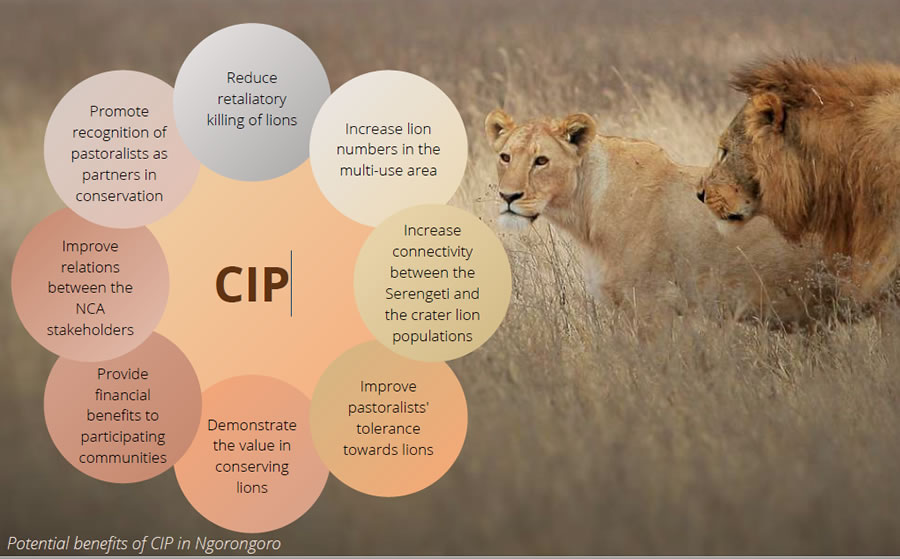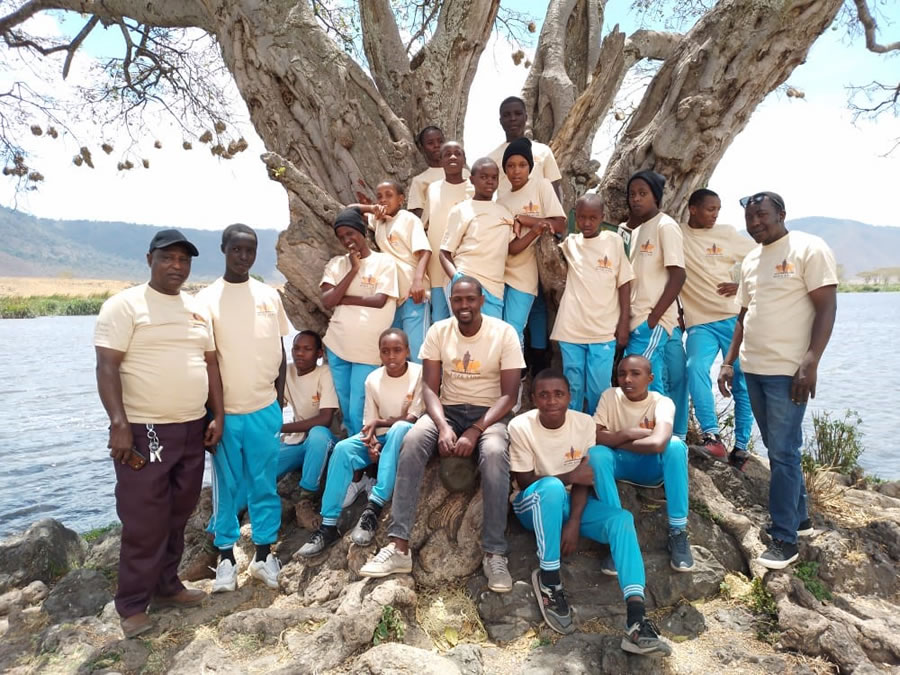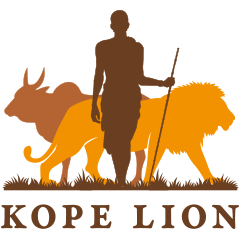Building Tolerance
The engagement of the Ngorongoro people to create a ‘corridor of tolerance’ between the crater and the Serengeti, has yielded considerable success, and our records shows that lions are recovering range in community occupied areas, and the time that lion are spending in areas occupied by people, has increased by approximately 12% per year since 2017. An increase of tolerance within pastoralist communities this has enabled lions to disperse between the hubs of the Crater and Ndutu.
Support provided by KopeLion Ilchokuti, such as treating wounds, recovering carcasses of livestock killed by predators and finding lost livestock help to build tolerance.
Conservation Incentive Payments
Compensation and consolation schemes have been largely ineffective at resolving human-carnivore conflicts around the world. CIP are a promising alternative to compensation schemes. Under a CIP program, people are not reimbursed for their losses; rather, they are financially rewarded for helping to achieve conservation goals, such as an increase in carnivore numbers.
“We can now ‘drink the milk’ from our lions”
– Molkilal Village member
Benefits are provided if and only if the conservation objective is achieved. This allows CIPs to align a community’s economic interests with conservation goals, engage local people as conservation partners, and help ensure that valuable conservation dollars yield results.

Through this CIP program, wards can earn revenue based on the presence of lions within the ward, as determined by KopeLion’s continued lion monitoring activities (which include sightings of individually recognized lions, confirmation of lion signs, and the use of camera traps, GPS collars, and lion call-ups).
“The presence of KopeLion has been a milestone towards coexistence with lions for us.”
Village Chairperson, Nasipaoriong
Benefit levels will be calculated using:
- a base amount for the verified presence of lions on ward land during each discrete measuring period;
- an additional, variable amount based on the number of unique, individually recognized lions on ward land during that period; and
- a substantial penalty for any lion killings.
With the 6 villages earning up to $23,000 a year, the outcome is, so far, positive and lions are seen to be spending more time in these areas than previously.

Desks purchased with funds from the CIP trial, 2021

Outreach
KopeLion Ilchokuti are trained regularly in everything that will help them in the work they do and that can provide more support to their communities. We enjoy these sessions as both a learning opportunity, but also as time to catch up, exchange stories and discuss any issues arising. The trainers we find are always intrigued by the knowledge of the Ilchokuti, and the teaching often ends up being swapped around!

Livestock wound treatment and health training + how to take samples for rabies testing, Ndutu, 2021
Investing in our future generation
We work hard to raise awareness about lions within the community, to share stories about the lions we know, their histories and inform people of their whereabouts, and build relationships. We make it a priority to work with people, especially children to ensure that when living alongside predators, they are safe.
We regularly facilitate meetings to discuss safety when herding and in homesteads, and we have produced films from Ngorongoro to remind people about culturally appropriate traditions and ways to keep safer, and other materials to ensure the safety message is repeated over and over.

Embaraway School visiting the Crater with KopeLion

Reading ‘Living with Lions’ a book in English and Swahili produced by PAMs, WildAid and KopeLion
